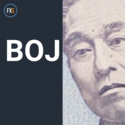Outlook
We are impressed by stories over the weekend from German officials laying the groundwork for additional sanctions against Russia. FinMin Schaeuble said "Economic interests can't be the top priority for a country. Maintaining stability and peace has top priority.” The WSJ reports “German Economics Minister Sigmar Gabriel, who is also vice chancellor, told Der Spiegel magazine that the German and European economies would feel the impact of sanctions but that the alternative would be worse. ‘Which consequences would it have if Europe were to stand and watch a civil war and the death of innocent people out of fear of economic consequences,’ Mr. Gabriel said, defending the planned measures. In a televised interview Sunday evening, Mr. Gabriel called for Russian oligarchs' bank accounts to be frozen across the EU. ‘We must show these billionaires that there is no room for them in Europe if they back a government that allows violence to continue in such a merciless way with these crazy separatists obviously willing to down a passenger flight,’ Mr. Gabriel said.
Europe will be harder hit by sanctions than the US and within Europe, Germany will be the hardest hit. But a poll by Der Spiegel shows 52% of Germans support sanctions, even if it costs jobs—some 300,000 according to DIHK. Total trade between Germany and Russia is about $100 billion and Germany takes about 24% of Russian gas exports.
The FT’s Munchau points out that the IMF was nuts to upgrade Germany GDP forecasts at a time when sanctions could bring growth down to zero or worse. We get the US preliminary GDP for Q2 on Wednesday, and it needs to be seen in the context not only of offsetting the terrible contraction in Q1 but also vis-à-vis European and especially German growth about to hit a brick wall. Remember, Q1 started out at +0.1% and got progressively revised down to -2.9%. The FT has a forecast of +2.9% for net nothing in the first half. The Market News forecast is 3.1% for Q2, meaning the first half eked out very little. But at the same time, Europe needs better performance than just to jog in place. We get eurozone flash CPI on Wednesday and flash PMIs on Friday.
Payrolls on Friday (foreshadowed by ADP on Wednesday) is forecast by the FT at 225,000, less than 280,000 the month before but giving a steady unemployment rate of 6.1%. A lesser number would be dollar-negative, and in fact, dollar negatives could begin tomorrow with Case-Shiller, however lagging, forecast to have decelerated from 10.82 in April to 9.90 in May.
That means by noon on Friday, we will have an updated perspective on growth and prosperity between the US and Europe. It’s conceivable the US will come off as an ugly sister and Europe the Cinderella, but it’s far more likely the US will be Cinderella. As Market News points out, CFTC data shows net euro shorts at 88,823 contracts from 62,846 the week before (and a net long of 32,551 as of May 6). This is the highest since Nov 20, 2012—after which the euro rose. In other words, the euro was oversold and traders responded to that directly. But shorts could build some more. We have seen higher numbers of euro shorts—the record euro short was 214,418 contracts as of June 5, 2012.
Talk is starting to make the rounds that the dollar has bottomed and is on the way up again, if data cooperates. Three things to keep in mind: dollar rallies are short-lived, for various reasons, some of them structural (like the permanent cur-rent account deficit and a well-deserved lack of confidence in Congress—remember the default crisis). Secondly, any whiff of bad data in the US, such as disappointing GDP or payrolls, gets an exaggerated response. You don’t have to like the euro to sell dollars.
But third, the Russia situation is a genuine crisis. So far oil and gold markets don’t see it that way, presumably because the US and Europe decline to get directly involved militarily or even sell weapons to Ukraine, and equities are shrugging it all off, but the potential for economic/financial war is very real. Europe would bear the brunt of it. Commentators say the US looks weak and Putin has the upper hand, but the real power lies in Angela Merkel’s hand. Germany will be the one paying the piper and has to be the one calling the tune. It’s not hard to write a scenario in which a third round of sanctions does materialize and European economies suffer for it. That doesn’t mean the euro responds immediately by falling sharply, but it sure doesn’t make for a rising euro picture, either.
Note to Readers: We will not publish any reports starting next Thursday, July 31 to Wednesday, August 6. It’s the first time in over 20 years we will not cover the payrolls report. Remember: spikes, often two-way. Stay away.
This morning FX briefing is an information service, not a trading system. All trade recommendations are included in the afternoon report.
Recommended Content
Editors’ Picks
USD/JPY holds above 155.50 ahead of BoJ policy announcement

USD/JPY is trading tightly above 155.50, off multi-year highs ahead of the BoJ policy announcement. The Yen draws support from higher Japanese bond yields even as the Tokyo CPI inflation cooled more than expected.
AUD/USD extends gains toward 0.6550 after Australian PPI data

AUD/USD is extending gains toward 0.6550 in Asian trading on Friday. The pair capitalizes on an annual increase in Australian PPI data. Meanwhile, a softer US Dollar and improving market mood also underpin the Aussie ahead of the US PCE inflation data.
Gold price keeps its range around $2,330, awaits US PCE data

Gold price is consolidating Thursday's rebound early Friday. Gold price jumped after US GDP figures for the first quarter of 2024 missed estimates, increasing speculation that the Fed could lower borrowing costs. Focus shifts to US PCE inflation on Friday.
Stripe looks to bring back crypto payments as stablecoin market cap hits all-time high

Stripe announced on Thursday that it would add support for USDC stablecoin, as the stablecoin market exploded in March, according to reports by Cryptocompare.
Bank of Japan expected to keep interest rates on hold after landmark hike

The Bank of Japan is set to leave its short-term rate target unchanged in the range between 0% and 0.1% on Friday, following the conclusion of its two-day monetary policy review meeting for April. The BoJ will announce its decision on Friday at around 3:00 GMT.